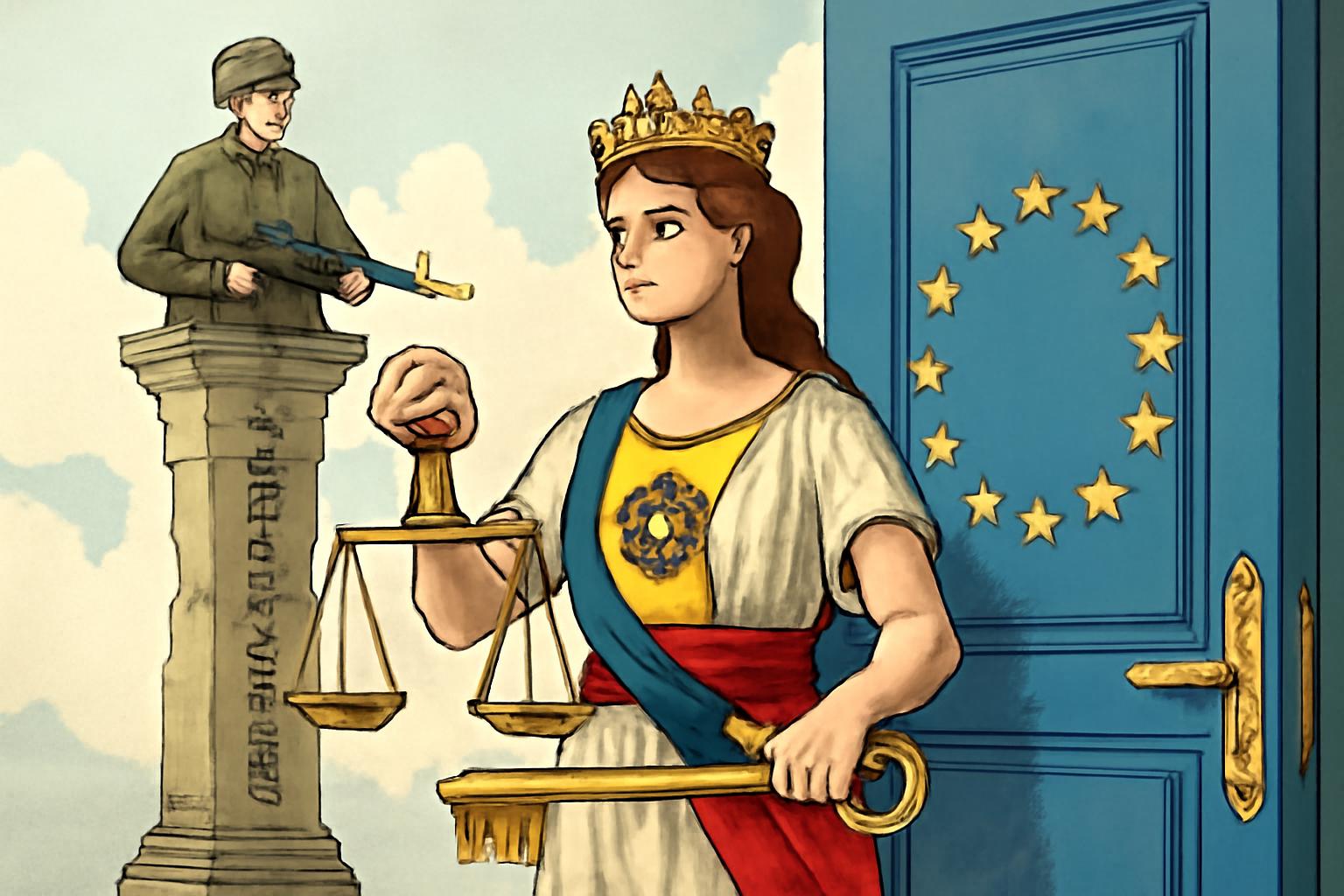If you can manage to drag your attention away from mere appearances, you will note that Moldova sits at a geopolitical hinge moment: ahead of its September parliamentary elections, the newest European audience—the German chancellor, the French president, and the Polish prime minister—toured the country to reaffirm Europe’s unwavering commitment to Moldova’s pro-European course and to resist Moscow’s destabilizing antics. They spoke of countering hybrid attacks, of defending sovereignty, and of the Union standing in solidarity as Moldova marches toward its EU bid. It was a ceremonial shield-waving, but a meaningful one for a nation perched between reform and reform fatigue.
On Moldova’s Independence Day, the same gentlemen offered more theater, with Merz declaring that the door to the European Union is open and urging Moldovans to see themselves as proper European actors. He framed Putin as the perpetual irritant driving Moldova toward Russia’s orbit, and warned that democracy itself is under the siege of hybrid warfare—both online and offline. Moldova, meanwhile, pursues EU accession talks begun in earnest in 2024, with candidate status since 2022, even as it wrestles with economic fragility and a domestic political divide between reform-minded and pro-Russian factions. The stubborn Transnistria question—Russian troops and propaganda lingering since the 1990s—adds a visceral reminder that the border between aspiration and reality remains precarious. The visit signaled renewed European confidence in Moldova’s reform path, even as fears of spillover from the Ukraine conflict hover like a damp fog over every budget line and every policy promise.
And now, a word from someone who has never had to beg for relevance from the whims of distant states. How deliciously the spectacle unfolds: a small nation, starved of deep capital but blessed with the grand theatre of power, treated as a duchy of Europe merely because its rulers can hum a tune about reforms and sovereignty. The chancellor, the president, the prime minister—each dripping with the sort of gravity that moneyed bloodlines acquire over centuries—toast Moldova as a citadel of freedom while the rest of us watch the borders and the balance sheets with a scholar’s care. They assure us that the door is open, that democracy is worth defending, that hybrid warfare is a threat—oh, the melodrama of it all.
Let us be brutally honest: this is a test of patience, not of charity. Europe’s “open door” is an invitation with a price tag and a timetable, wrapped in the language of unity and reform. Moldova’s economy remains vulnerable; its politics split between those who worship at the EU altar and those who flirt with a return to Moscow’s stagecraft. The Transnistria complication is not a footnote but a live wire, constantly reminding us that “sovereignty” in this corner of Europe requires more than speeches and photo ops. If Moldova truly wishes to walk through that door, it will need more than bravado and borrowed prestige from its benefactors. It will require discipline, accountability, and a willingness to make the hard choices—economic, legal, and strategic—without letting the usual patronage and internal quarrels degrade the prize into another layer of debt and dependency.
And I, who have enjoyed the privilege of watching a century’s worth of grand gestures from afar, confess a sly amusement: the same chorus promising protection and progress while quietly calibrating influence, money, and the precise optics of reform. To any Moldovan voter or official who believes this is simply about “getting to Europe,” I offer this: the real measure of advancement is not the door that Opens but the room you earn in the house once inside. Will the reforms endure when the lights are off, when EU funds arrive with strings, and when Transnistria remains a stubborn hinge on your flank? Or will the glitter of high-minded declarations fade, leaving you with the same vulnerabilities, only more indebted and more beholden to those who funded the dream?
In short, the spectacle underscores a sobering reality: Europe wants you as a partner, not as a ward. The question is whether Moldova will seize the chance with the sort of steadfast seriousness that such opportunity demands, or whether the romance of “open doors” will outpace the hard, patient work that true sovereignty requires.
